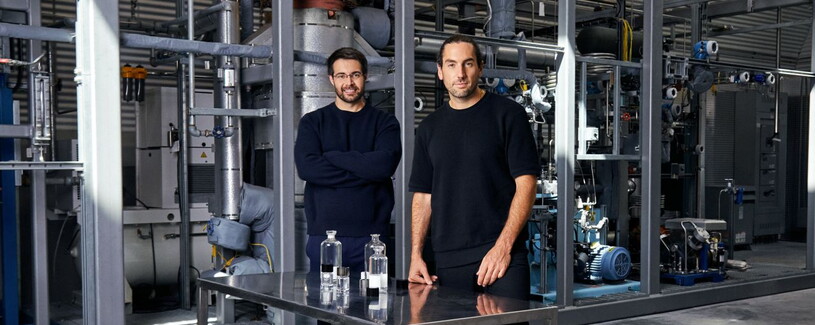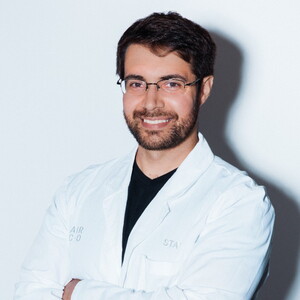Air Company Co-Founder Shares Insights with Yale Students
Staff Sheehan comes back to Yale, sharing lessons learned in his pursuit of ventures that help solve the climate crisis

-by Aprajita Singh (MEM '22)
Dr. Staff Sheehan recently spoke to Yale students participating in the Climate Innovator Intensive, a joint initiative between Tsai CITY and CBEY. The Climate Innovation Intensive aims to broaden understanding of climate entrepreneurship and innovation through different perspectives.
You can learn more about this program here.
Before Air Company ventured into making jet fuel, they were making spirits. Vodka, to be precise. The carbon-negative spirit was named one of the best inventions of 2020 by Time magazine. But as impressive as Air Vodka surely is, what is several orders of magnitude more important is the process behind it, which converts excess atmospheric carbon into alcohol and oxygen. The technology is the brainchild of Staff Sheehan, serial inventor and entrepreneur, co-founder of Air Company with a Ph.D. in Physical Chemistry from Yale.
Since the success of Air Vodka, Staff and his colleagues have expanded the application of his carbon transformation technology to Sustainable Aviation Fuel (SAF). Since its inception, the goal of Air Company has been to contribute to solving the climate crisis, so it makes sense to apply the technology to the aviation sector. In their own words, they are ‘turning the planet’s most abundant pollutant into a never-ending resource’. In doing so, they are addressing one of the most challenging global decarbonization issues. The aviation sector is responsible for 3% of carbon emissions at present. Unlike land-based transportation emissions, long-distance aviation has proven extremely difficult to electrify, so the most viable solutions to cutting emissions involve using Sustainable Aviation Fuels (SAFs).
Naturally, there is also immense economic potential; SAFs are growing at a CAGR of 68% and the market is projected to be worth $14.8 B by 2030. Their use is being piloted by commercial aviation companies across the world and the US has announced its goal of achieving a 20% SAF market share by 2030. Air Company’s SAF products are perfectly poised to make use of these favorable conditions. The company also won NASA’s CO2 Conversion Challenge in 2021, by demonstrating carbon transformation technology that can be used on Mars.
When asked about the lessons that he has learned over his career as an inventor and entrepreneur, Staff emphasizes the importance of learning from past failures. One example is that of a startup idea that revolved around emergency medical equipment franchising. Despite rigorous preparation and inputs from experts (including Staff, a former EMT himself), in the end, it turned out there was no market for the concept. Regulatory barriers made it a difficult field to break into. Knowing when to quit, according to him, is as important as any other entrepreneurial skill. Which is not to say that this is his first success, by any means. As a prolific researcher and inventor, Staff has had a number of small successes before Air Company, turning his research into practical technology. He has 10 patents to his name, and Yale awarded him the 2016 Richard Wolfgang Prize for his Ph.D. dissertation.
In conversation with students as part of the Climate Innovation Intensive hosted by CBEY and Tsai CITY, his parting advice was to pick partners who trust your judgment when it comes to making decisions. He also shared some news regarding Air Company’s own partnerships; they are working on projects with NASA to develop sustainable rocket fuel next!
